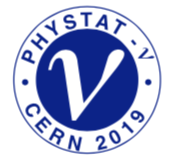Speaker
Description
Parameter estimation in high-energy neutrino/HEP experiments often involves Monte-Carlo simulations to evaluate likelihood functions, a typical use case being forward-folding Poisson likelihood analyses. Limited Monte Carlo samples induce statistical uncertainty into this problem. This is sometimes solved by the classical Ansatz of Barlow/Beeston (1993) - an approach that can be thought of as nuisance parameter optimization. Another approach tries to model the underlying statistics of weighted Monte Carlo directly via a Compound Poisson Distribution ("CPD", Bohm/Zech, 2014), but is not analytically tractable. This talk introduces an Ansatz to this problem which can be thought of as a probabilistic generalization of Barlow/Beeston (93) which involves a Bayesian approximation to the CPD described by Bohm/Zech in 2014. The result therefore unifies these two previously disconnected approaches and is simultaneously analytically exact and efficient to compute. It also involves previously unknown probability distributions and a new representation of a certain hypergeometric function (Carlson $R_n$/Lauricalle $F_D$), which by itself is connected to other areas of statistics. For example, it implies a new formula to calculate arbitrary B-Spline moments exactly, which again might be of interest to the community for different reasons. We end by comparing the different approaches from the literature in typical likelihood scenarios that one might encounter in neutrino/HEP experiments, and describe for the first time a unified picture of five major approaches that have been published over the last 25 years - it should hopefully clear the fog for people who are confused by the apparent multitude of possibilities that exist in the literature.
